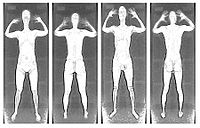
Photo from wikipedia
Do privacy rights restrict what is permissible to infer about others based on statistical evidence? This paper replies affirmatively by defending the following symmetry: there is not necessarily a morally… Click to show full abstract
Do privacy rights restrict what is permissible to infer about others based on statistical evidence? This paper replies affirmatively by defending the following symmetry: there is not necessarily a morally relevant difference between directly appropriating people’s private information—say, by using an X-ray device on their private safes—and using predictive technologies to infer the same content, at least in cases where the evidence has a roughly similar probative value. This conclusion is of theoretical interest because a comprehensive justification of the thought that statistical inferences can violate privacy rights is lacking in the current literature. Secondly, the conclusion is of practical interest due to the need for moral assessment of emerging predictive algorithms.
Journal Title: Philosophical Studies
Year Published: 2021
Link to full text (if available)
Share on Social Media: Sign Up to like & get
recommendations!